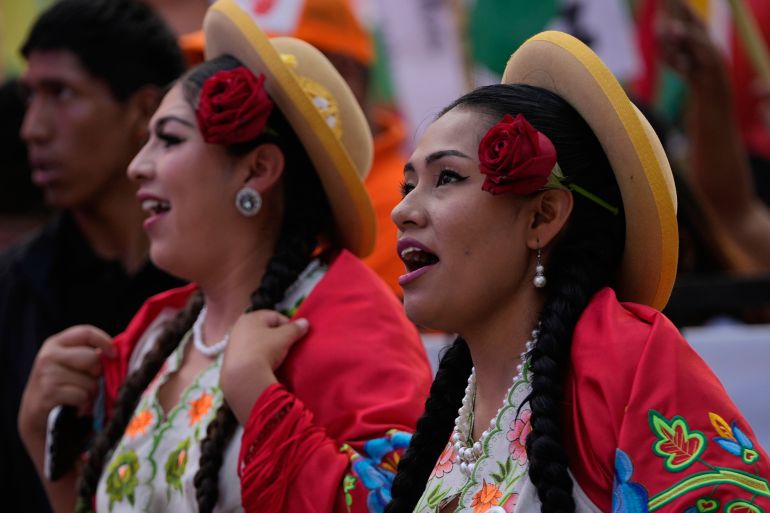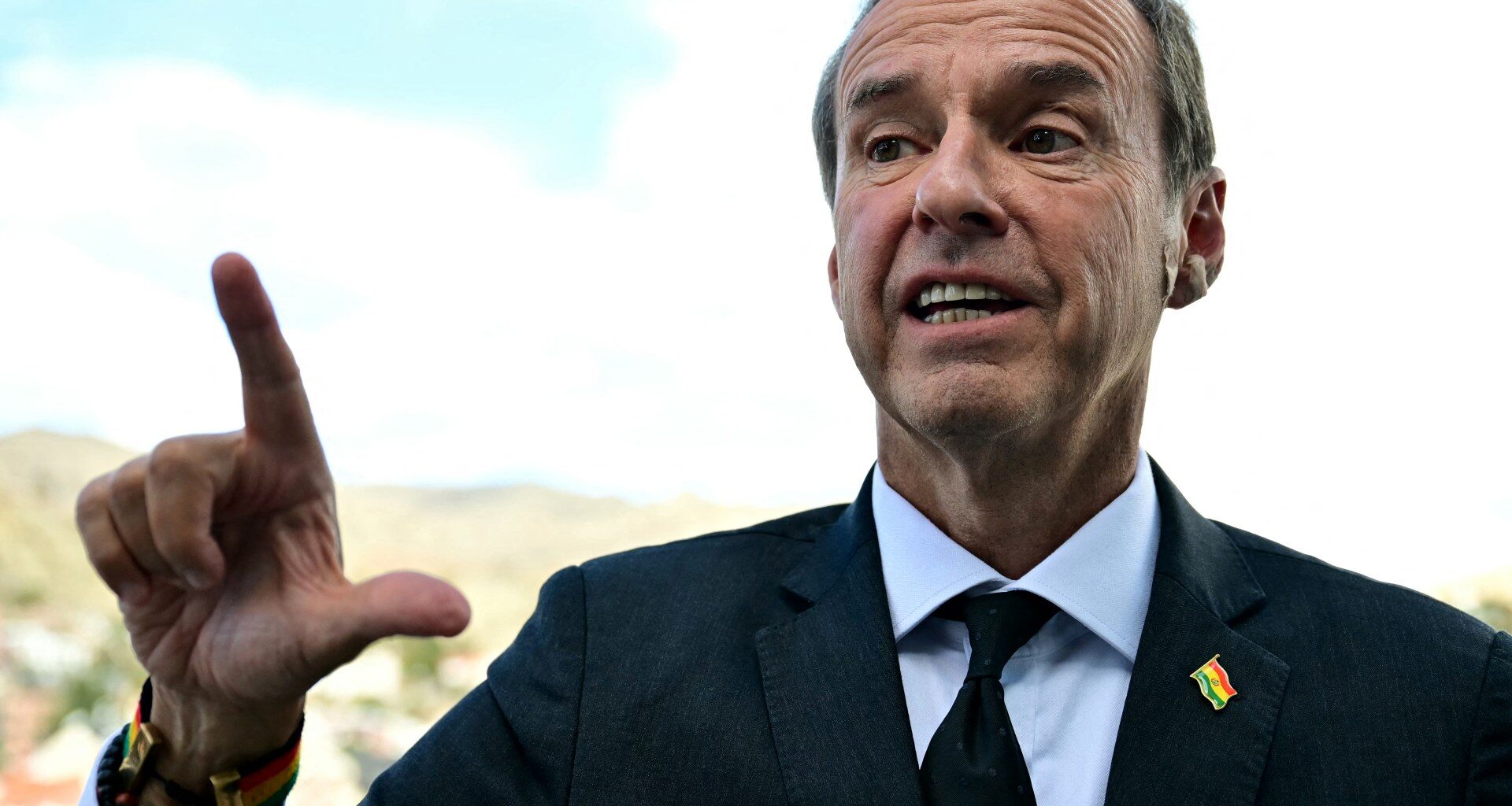Polls have closed in Bolivia in a presidential election run-off between two pro-market candidates, marking the end of nearly two decades of socialist rule and the start of a likely realignment towards the United States.
Voting stations opened at 8am local time (12:00 GMT) and closed at 4pm (20:00 GMT) on Sunday. Initial results will emerge in a few hours’ time, with the official decision expected by Thursday.
Recommended Stories list of 4 itemsend of list
The vote pitted conservative former interim President Jorge “Tuto” Quiroga, 65, against a centrist senator and economist, Rodrigo Paz, the 58-year-old son of former left-wing President Jaime Zamora.
Polls showed a tight race, with Quiroga holding a narrow lead.
Both men have promised to overhaul Bolivia’s crisis-hit economy and restore the relationship with the US after years of tense, often hostile, ties under the left-wing governments of Evo Morales and his successor, outgoing President Luis Arce.
 Presidential candidate Rodrigo Paz waves during a campaign rally in Tarija, Bolivia [Juan Karita/AP Photo]
Presidential candidate Rodrigo Paz waves during a campaign rally in Tarija, Bolivia [Juan Karita/AP Photo]
The governing Movement Towards Socialism party (MAS), racked by division, failed to advance a candidate to the run-off election, meaning its leadership is slated to come to an end. Support for MAS, which has dominated Bolivian politics since Morales first took power in 2006, all but collapsed in the first round of voting in August.
The vote comes as the nation of 11 million faces its most serious economic crisis in decades.
Al Jazeera’s Alessandro Rampietti, reporting from La Paz, said that many expect these elections to “bring the start of a new political cycle in Bolivia”, amid a “very severe economic crisis that they’ve been dealing with for a number of years now”. He said that the oil sector “has fallen by 60 percent”, natural gas output “has fallen 46 percent”, and inflation has surged above 20 percent.
At a polling station in central La Paz, Rampietti said that electoral officials were “just about to begin opening the boxes, starting to tally the votes”, with results expected within the hour. He added that “we should have a possibly clear idea of who will win in roughly four hours’ time”, while official results are likely to be confirmed on Thursday.
Rampietti noted that the incoming president will face significant challenges, including the need “to attract US dollars and import fuel to ease the shortages in the country”.
He also warned that political change in the country often sparks conflict, reporting that unions “will be ready to protest against the attempts of the new government to put in place reforms”.
Rampietti noted that the elections carry broader implications: Bolivia may “restore relationships with the US and move away from the countries that have been allies … from Iran, Venezuela, Cuba”, while its vast lithium reserves add to the stakes.
‘Situation is terrible’
Once South America’s fastest-growing economy, Bolivia has nearly depleted its foreign currency reserves after years of heavy subsidies and underinvestment in its gas industry.
“The situation is terrible. We don’t know what’s going to happen. Everything is very expensive,” Felicidad Flores, a 67-year-old street vendor in La Paz, told the AFP news agency. “I hope it doesn’t go up more.”
Driver Javier Quispe, 40, sitting in his truck in a kilometre-long fuel queue in the city, told the agency that Bolivians were “worse off than before. There isn’t much hope that things will change.”
For many, the run-off signals a return to the market-friendly policies of the 1990s, an era that brought both an economic opening and deep inequality.
“This election marks a political turning point,” Glaeldys Gonzalez Calanche, an analyst for the International Crisis Group, told the Reuters news agency. Regardless of who wins, “Bolivia is heading in a new direction”, she said.
Analyst Daniela Osorio of the German Institute for Global and Area Studies told AFP that Bolivians’ patience was “running out”.
Once the election is over, she warned, “if the winner does not take measures to help the most vulnerable, this could lead to a social uprising”.
Contrasting visions
Both candidates have outlined different versions of reform.
Quiroga, who governed briefly from 2001 to 2002, has promised “radical change”, proposing opening the economy to international investment and foreign loans, and deep cuts to public spending and the closure or privatisation of loss-making state firms.
Paz advocates a slower path of “capitalism for all”, combining fiscal discipline and decentralisation with continued support for social programmes.
Each has proposed curbing the country’s universal fuel subsidy, keeping it only for public transport, to ease the strain on public finances.
 Supporters of Paz attend his closing campaign rally in Tarija, Bolivia, October 15, 2025 [Juan Karita/AP Photo]Morales remains a player
Supporters of Paz attend his closing campaign rally in Tarija, Bolivia, October 15, 2025 [Juan Karita/AP Photo]Morales remains a player
Both candidates have courted the US for support.
US Secretary of State Marco Rubio said last week that the vote represented “a transformative opportunity” for bilateral ties, with both candidates seeking “stronger, better relations with the United States” after decades of anti-US leadership.
Yet, with neither candidate likely to secure a majority in Congress and former leader Morales still commanding loyal grassroots support, governing may prove difficult.
Morales remains a political player despite being the target of an arrest warrant for human trafficking over an alleged sexual relationship with a minor, an accusation he denies. He was constitutionally barred from seeking another term, but has called on his followers to boycott the vote.
“Even weakened, Morales remains a factor of potential destabilisation,” said Osorio.
Nearly eight million Bolivians are eligible to vote, and participation is mandatory. The winner will take office on November 8.
